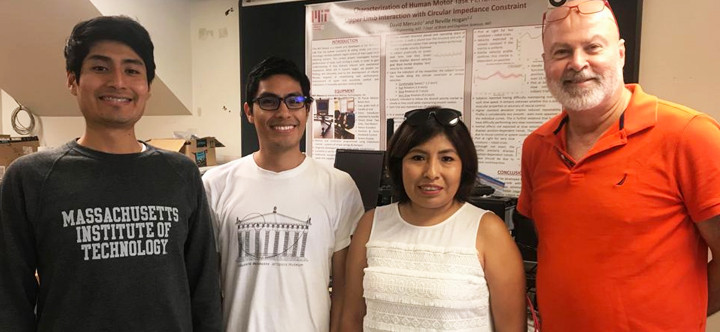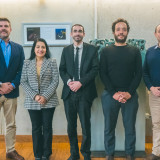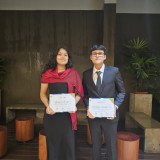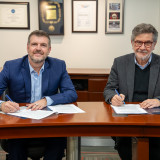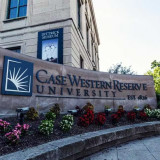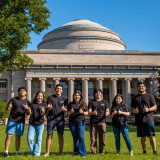- We are Utec
- Admissions
- undergraduate Programs
- Graduate School
- Companies
- Ventures
- Apply to UTEC
- English
- Español
Languages
Learn
About Us
Our Academic
Offer
Ingenuity,
dedication, and
the pursuit
of excellence
International
alliances
Learn
About Us
The university that empowers ingenuity, innovation, and entrepreneurship.
Our Academic
Offer
With our active learning methodology, our students experience engineering from day one.
Ingenuity,
dedication, and
the pursuit
of excellence
Our students' DNA: achieving highest academic achievement and personal development.
International
alliances
We've built strong relationships with the best educational institutions in the world.
Research
Experience
The right path to finding better solutions.
Sustainability UTEC
Sustainability documents
Contact:
Giancarlo Marcone
HACS DIRECTOR
gmarcone@utec.edu.pe
Learn
About Us
The university that empowers ingenuity, innovation, and entrepreneurship.
Our Academic
Offer
With our active learning methodology, our students experience engineering from day one.
Ingenuity,
dedication, and
the pursuit
of excellence
Our students' DNA: achieving highest academic achievement and personal development.
International
alliances
We've built strong relationships with the best educational institutions in the world.
Research
Experience
The right path to finding better solutions.
Sustainability UTEC
Sustainability documents
Contact:
Giancarlo Marcone
HACS DIRECTOR
gmarcone@utec.edu.pe
By Lucia Solis
Electrical students Joao Fabian Lizarraga and Jhon Charaja Casas participated in a four-week internship within the MIT International Science and Technology Initiatives (MISTI) program and as part of a project led by Dr. Ruth Canahuire, Mechatronics Engineering Coordinator at the University of Engineering and Technology (UTEC) and Dr. Hermano Krebs, Professor and Researcher at the Massachusetts Institute of Technology (MIT), which focuses on the design and control of a prosthesis through the use of soft robotics.
What was the focus of the internship you did at MIT?
Joao Lizarraga: We received feedback from Professor Krebs, which allowed us to better plan the next steps in the project. In addition, we participated in projects that were being developed in their research group, allowing us to learn by interacting with MIT students, and visitors from the University of California Santa Barbara and Cornell University.
How did you achieve this opportunity?
Jhon Charaja: Last year, as part of the Seed Fund UTEC-MIT, our research proposal: Design and Control of a Soft Hand Prosthesis for People with Partial Disability of their Upper Limb led by Professor Brother Igo Krebs, principal researcher of the Department of Mechanical Engineering at MIT and Professor Ruth Canahuire, from the Department of Mechatronics Engineering of UTEC, was accepted. The project began this January and will end in August 2020. In order to present the progress of the project and set new goals, Joao and I traveled to MIT.
What activities did each one participate in?
Jhon Charaja: In our first meeting, Professor Brother Igo Krebs proposed two additional projects. I chose the rehabilitation project for people who had lost sensation in the lower limbs after a stroke. My partner chose the design project of a collar for people with problems in lifting and maintaining their neck voluntarily.
What new learning experiences have you had?
Jhon Charaja: For my part, I have learned more about the process of physical rehabilitation, learning the functions of some muscles of the lower limbs of the body and the phases of the walking cycle.
Joao Lizarraga: This internship allowed us to acquire technical knowledge and soft skills. From the technical side, working at MIT under the supervision of Professor Krebs gave us the possibility to broaden our vision of the progress made in the area of soft robotics. On the other hand, interacting with people with a different culture, in a different language, but under the same goal has been a great experience.
What do you think have been your contributions to the project during this internship?
Joao Lizarraga: We believe that, just as we received the support and comments from Professor Krebs and the people who work with him, we also provided interesting ideas that allowed us to delve into different issues that were beneficial for our projects.
What impact do you consider this opportunity has had on you?
Jhon Charaja: Supporting a project that helps in the rehabilitation process of a person with walking problems has been a great experience.
Joao Lizarraga: The internship leaves us feeling positive. It allowed us to acquire different types of knowledge that we consider relevant in our development as individuals and professionals.
‘‘This experience was very enriching for the UTEC team. The students were able to learn and share knowledge in a laboratory where projects of great academic level are developed. Likewise, this internship, including my visit to MIT, succeeded in strengthening the collaborative work link between MIT and UTEC in the line of rehabilitation robotics’’, concludes Professor Ruth Canahuire.
EN UTEC VENIMOS DESARROLLANDO LA TECNOLOGÍA
Y LA INGENIERÍA QUE NECESITA EL MUNDO DEL MAÑANA
Carreras en ingeniería y tecnología que van de la mano con la investigación y la creación de soluciones tecnológicas de vanguardia, comprometidas con las necesidades sociales y la sostenibilidad.
Decide convertirte en el profesional que el mundo necesita. Estudia en UTEC y lleva tu ingenio hacia el futuro.
Noticias recientes
-
- STUDY ABROAD
- Studying in Peru
- Living in Peru
- FAQ
- Application Form
- Contact us
-
- EXECUTIVE EDUCATION
- Executive Education
- Short Courses
- Inhouse Courses
- Calendar
